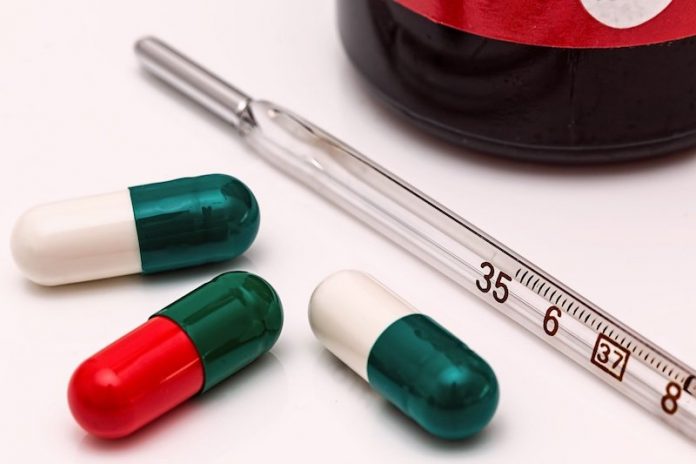
In a new study, researchers found evidence that drug minocycline could improve depressive symptoms in patients with treatment-resistant depression and low inflammation.
Minocycline is a widely used antibiotic with anti-inflammatory properties.
The research was conducted by a team at King’s College London.
In the study, the team tested 39 patients with major depressive disorder.
The patients, who were taking their routine antidepressant treatment, were split into two groups, one group took daily a placebo (sugar pill) tablet while the other group took daily minocycline alongside their routine treatment for 4 weeks.
The team found both groups showed a similar, strong improvement in depressive symptoms.
However, patients with higher C-reactive protein (CRP) levels, indicating low-grade inflammation, showed greater improvement in their depressive symptoms when taking minocycline.
The findings suggest that patients with increased levels of C reactive protein (an inflammatory biomarker) show good response in terms of reduction of depressive symptoms following treatment with minocycline.
The team says among the many patients with depression who do not respond to usual antidepressant treatment, in at least two-thirds of patients this could be due to the increased levels of inflammation.
The new findings show a potential new effective treatment for these patients.
Researchers also found that levels of two biological markers, CRP and IL-6, can be used to predict minocycline response in depression.
They identified a specific threshold of CRP levels which is associated with the antidepressant effect of minocycline treatment.
Another inflammatory marker, interferon-gamma, was reduced by the treatment with minocycline but not by placebo, suggesting specific pathways mediating the effects of minocycline on depressive symptoms.
One author of the study is Dr. Valeria Mondelli.
Copyright © 2021 Knowridge Science Report. All rights reserved.



